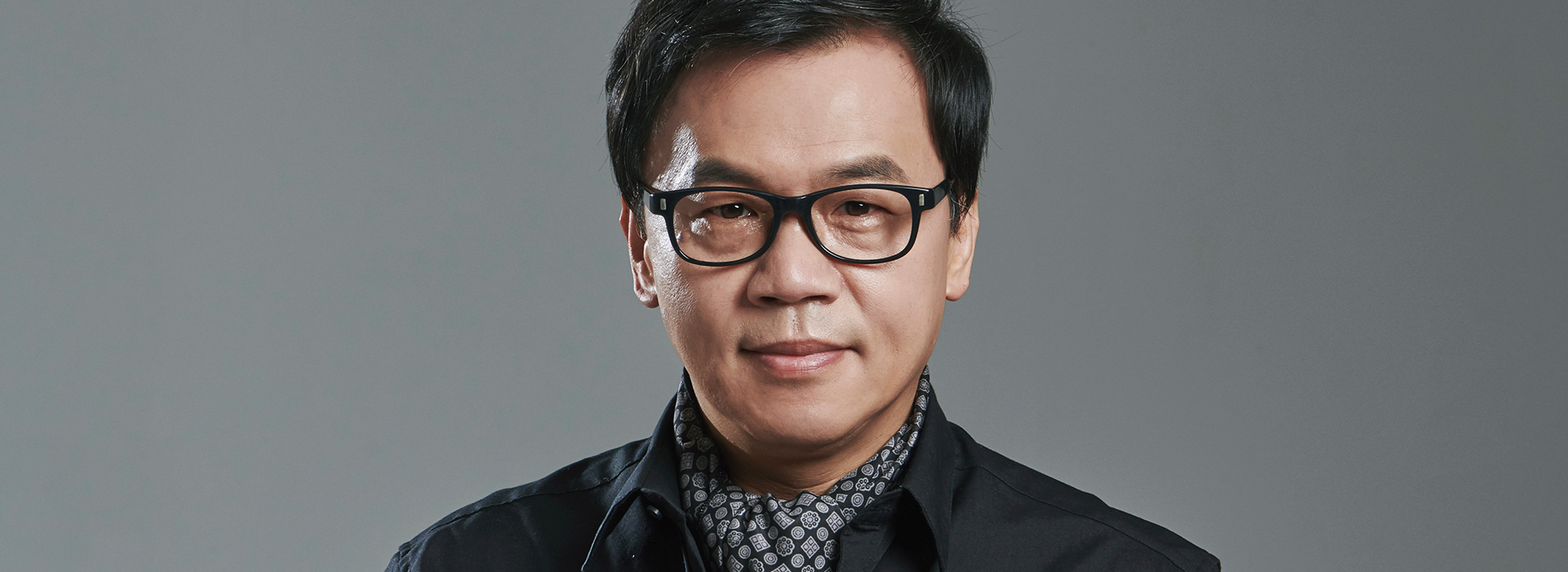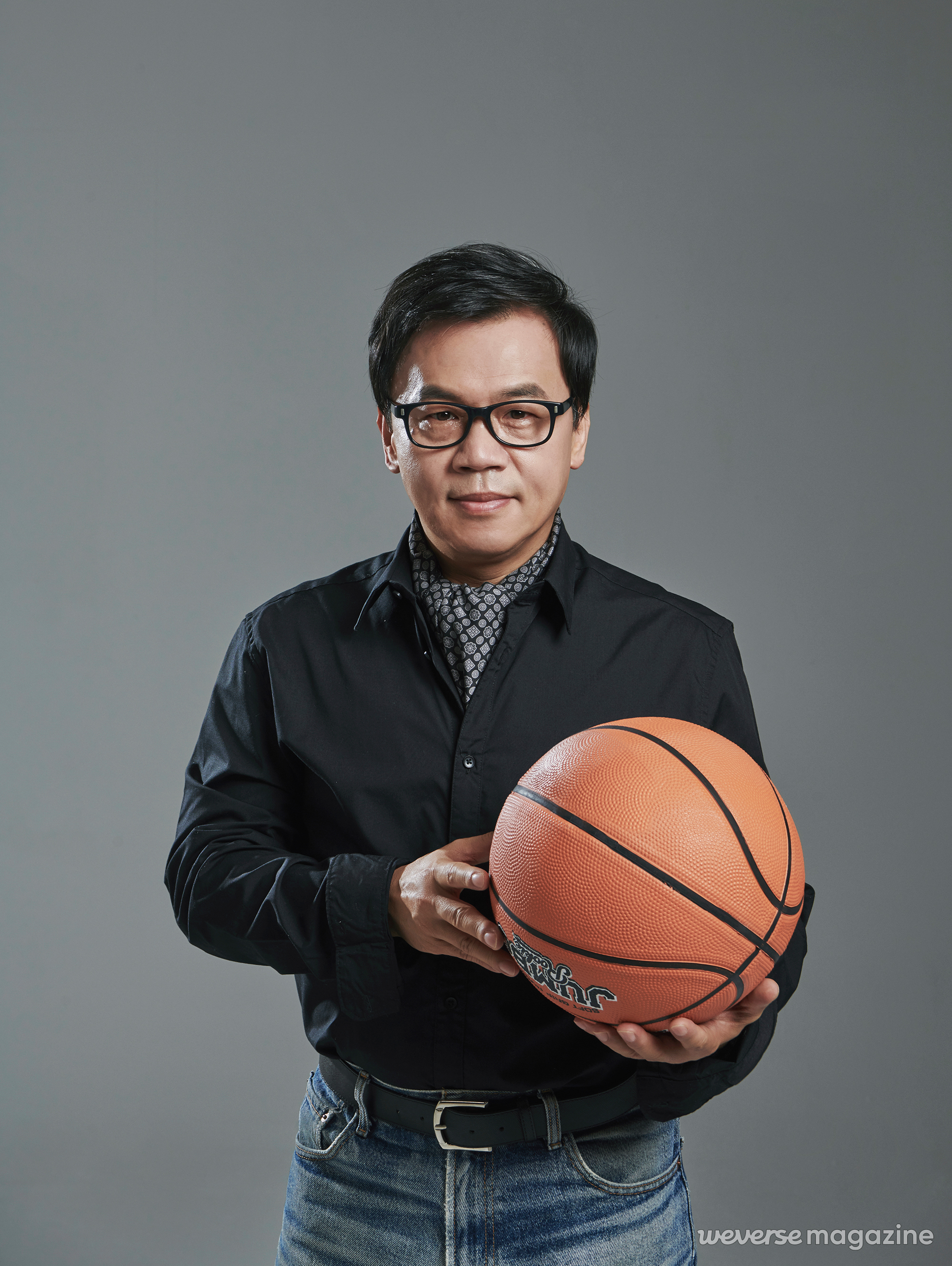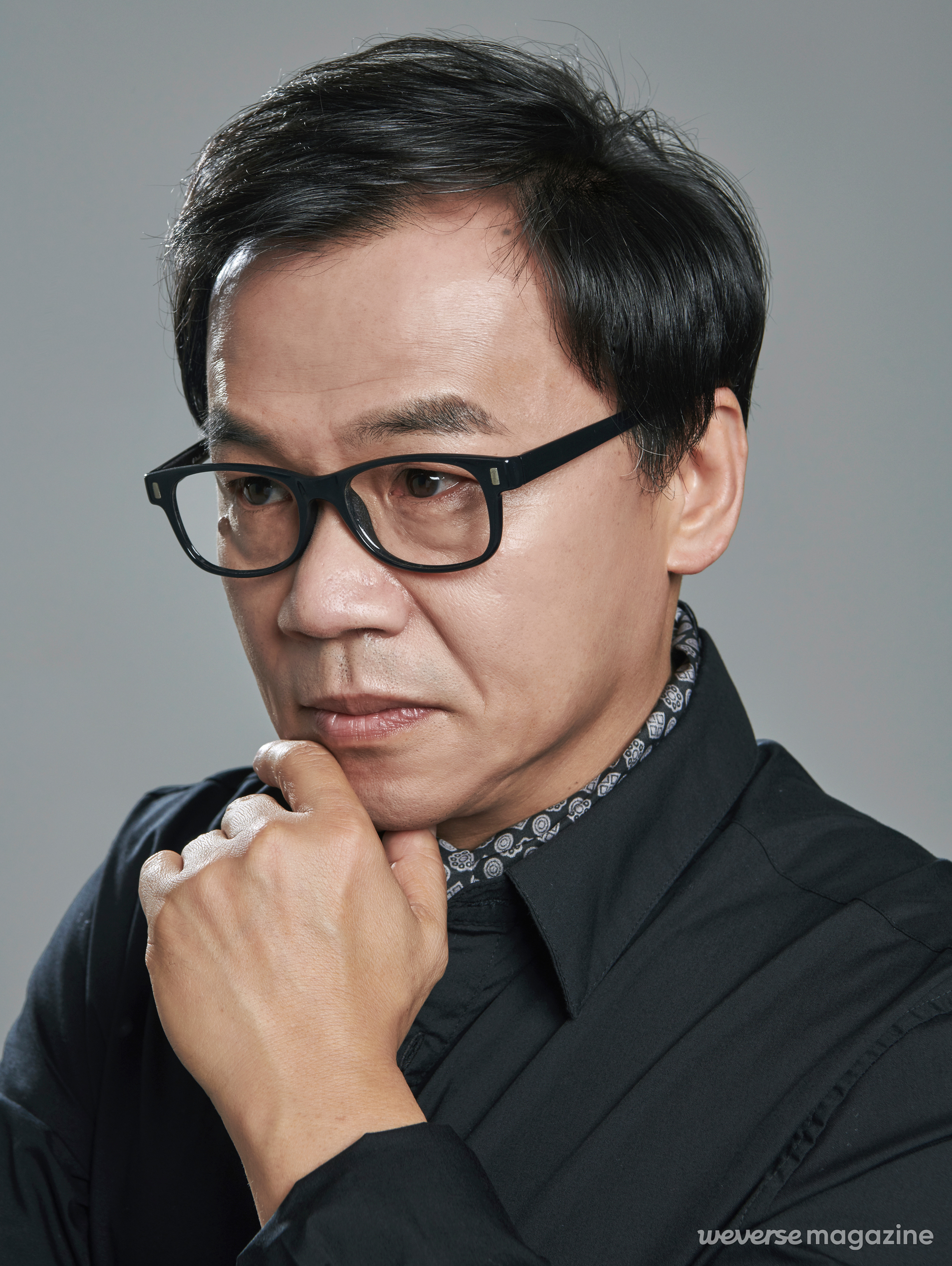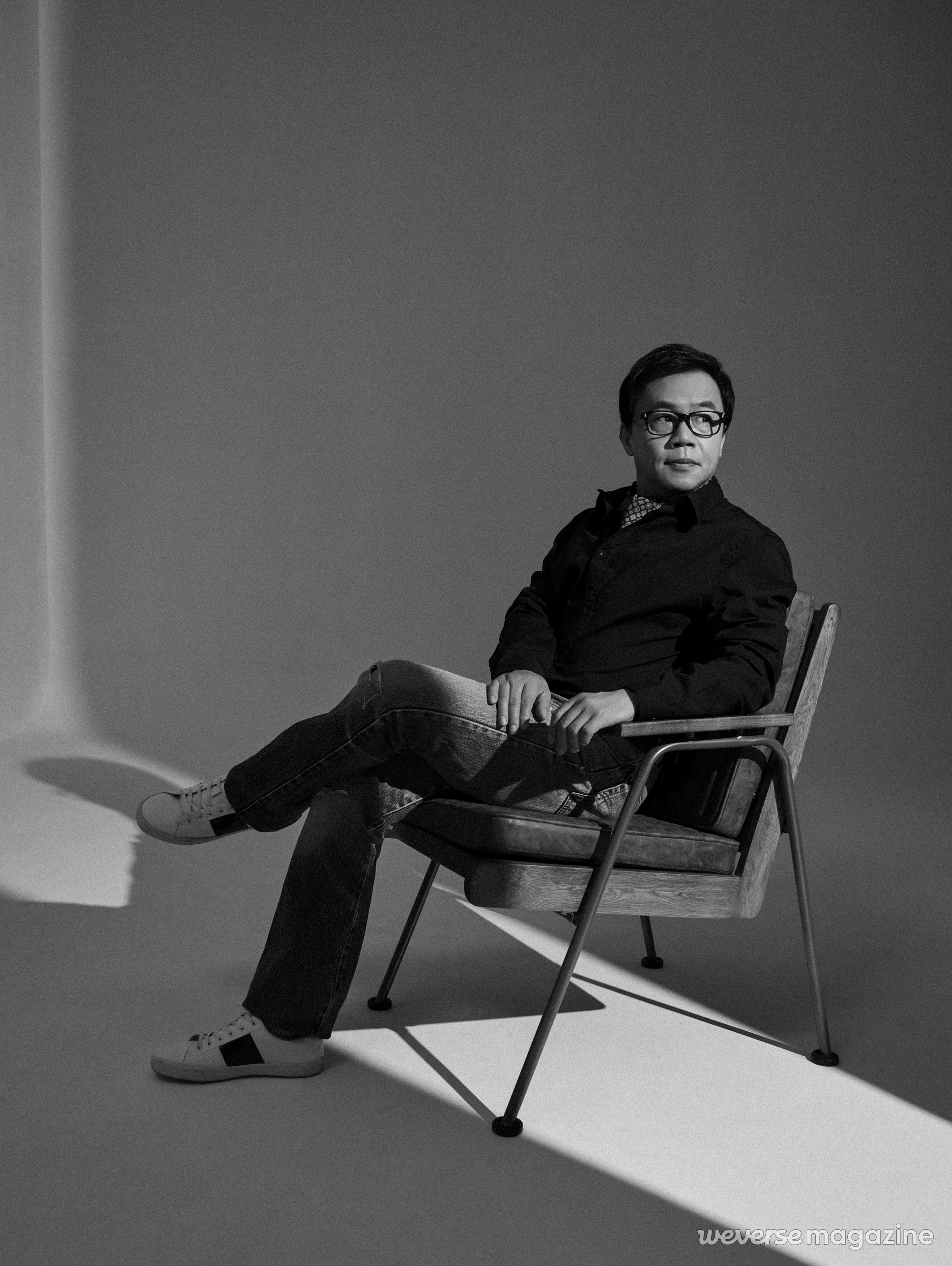
“When were your glory days, old man? The nationals? Mine’s right now!” The SLAM DUNK series has been revived for the first time in 26 years. More than 3.6 million people in Korea have watched THE FIRST SLAM DUNK, the new animated film, as of February 27, making it the second-most watched anime movie in the country ever. It’s even spawned new slang words like sl’chinja (SLAM DUNK maniac) and nongnol (rewatching the movie or rereading the manga). It stands as proof that Hanamichi Sakuragi’s story continues on after those last eight seconds in the game against Sannoh High when he refused to give up despite his injury. Weverse Magazine asked Kang Soojin, the voice actor for Hanamichi Sakuragi (named Kang Baekho in the Korean version) in both the original SLAM DUNK anime and the new movie, about Hanamichi in this latest installment and about his glory days as a voice actor.
After 26 years, you’re back to playing Hanamichi Sakuragi again.
Kang Soojin: Even after 26 years, Hanamichi’s the same as ever. People who are in their 30s and 40s now still have memories from their teens of hotheaded, basketball-loving Hanamichi, so [THE FIRST SLAM DUNK] stirs up deep memories. But honestly, now that I’m approaching my late 50s, I had some trouble bringing a feeling from 26 years ago back to life through acting. I had a lot less lines than when Hanamichi was the main character, but he’s a kind of ace up the sleeve or joker card who stirs up important dramatic points and emotional turns within the story, so his presence stands out compared to the amount of dialog. So it wasn’t exactly easy, despite the small number of lines.
Hanamichi was the only thing in THE FIRST SLAM DUNK not to change, including both his storyline and having you as his voice actor.
Kang Soojin: The game against Sannoh only ever took place in the manga, so this was the first time I had to act it out, but I didn’t have any trouble understanding the story since I already knew it through the books. I was a little worried whether there would be good chemistry since the voice actors on Hanamichi’s team and on Sannoh weren’t the same actors from before, but they’re great actors so I just focused on getting my own part right. (laughs) When dubbing animated movies destined for the theater, everyone records their parts one by one, so it’s less about playing off the other actors and more about playing off the character who appears onscreen.
What was it like playing off Hanamichi again in 2023?
Kang Soojin: I still sometimes hope to be boyish deep down inside so it wasn’t that hard to act that way again. (laughs) The author’s directorial vision and ideas changed in some ways from the old animated series and movies so that was a little hard to adjust for. In the TV show, the episodes were short and had to grab the viewer in just 20 minutes and make them want to watch the next episode, too. So while the characters, story and direction were all exaggerated and importance was placed on making the jokes land, the movie looked to be more refined and sits around two hours long, so naturally Hanamichi changed, too. He was more reckless and simple and had to get his own way before, and he was more of a funny character. So I used to go over the top and emphasize the humor in my acting, even yelling. You could say this time I looked to be more natural and less exaggerated while fundamentally remaining the same hothead character.
You mentioned in an interview with JTBC as well that you tried to play Hanamichi naturally according to his character rather than just being yourself.
Kang Soojin: When an actor has a lot in common with a character in a story and they’re cast based on that image, they have no problem acting naturally, but the gap between my real character and Hanamichi is substantial. And I’m not hotheaded the way Hanamichi is. Nor am I tall. Or buff. (laughs) I have to do a completely different character from my own, so if I act naturally it probably won’t be the right image. So it’s not about acting natural as in acting like myself but analyzing Hanamichi’s character—analyzing how someone like that would act and talk—then aiming to act in a natural and unexaggerated way. The words and actions that appear in the script are the result of a process. There has to be research that goes into what kind of psychological background and what forces are at play that shape the foundation of a character to get at their ultimate words and actions. Sometimes a character has a similar psychological bent to me, and at other times they’re completely different. Julian Star [also known as Yukito] from Cardcaptors [also known as Cardcaptor Sakura] is really different from me, too, so it came with a number of challenges, and it wasn’t easy to find a real person who’s like him, so in cases like that I refer to similar characters in other movies or series to observe and study that kind of person’s psychology and actions and try imitating them, all so I can get closer to them.
Hanamichi and Julian Star are such polar opposites that it’s hard to believe they’re voiced by the same person.
Kang Soojin: For voice actors, their voice is to them just like an actor’s appearance is to them. Actors change their appearance through makeup and wardrobe to portray their characters, but in the same way that it feels off if they just change how they look without understanding their character’s psychology, voice actors have to fully understand and analyze what their character says and does and why and make them their own, too. So it’s important to ask what genre the movie or show is and what age group it’s for. A lot of animation is aimed at kids and teens, so it’s important whether it’s targeting kids or teenagers, and if it’s teens, whether they’re girls or boys. You don’t have to become a master of psychology, but you absolutely have to study things like the psychological thought process of a typical child that are most commonly known about. It’s not enough to just do a kid’s voice—you have to look at things through their eyes. When you’re young, you’re not using your head to understand things—you just feel them out intuitively. You express the meaning of their words through the lines just like with adult characters but I think there’s deep emotions and an outlook to be conveyed there. You have to be on their level so the things you say don’t feel off or inauthentic.
Both Hanamichi and Julian Star are from animes that started airing in the 1990s. I heard that the trend back then was to move away from a deeply resonating so-called “bathroom voice” and instead use a lighter, brighter one.
Kang Soojin: The over-the-air broadcaster SBS was born in the 1990s and with it there was suddenly a larger proportion of animated and foreign shows, and with the introduction of cable, the number of animated shows exploded. They had a need for a lot of teens to be voiced at the time. I’ve actually been pretty lucky as a voice actor to benefit from the way the environment has changed as demand has progressively increased with the expansion of the animation and game markets. (laughs)
That really makes me think of Hanamichi’s famous like in THE FIRST SLAM DUNK: “When were your glory days?” When were your glory days, exactly? (laughs)
Kang Soojin: Other people can give me honors by giving me recognition or an award, but the way I feel it myself is when I play a good character in a good work—when I enjoy myself in a good work. I do a lot of acting but it’s not always fun. I’ve never been fully satisfied with myself on any of my acting jobs but now and then I’m honored that I get to work on an enjoyable project. Even when you work hard and make something where the numbers indicate success, sometimes you don’t personally feel a sense of accomplishment or you might feel dissatisfied. Feeling accomplished and satisfied is relative and subjective so it’s something only you can tell. You can’t find pleasure in every acting experience, but I think acting is about always craving that and wanting to experience it.
In the video titled “50K Subscribers Special Q&A” on your YouTube channel, @duckbunae, in response to a question about which character you found difficult or tiring to portray, you said, “There’s so many. None of them were easy.”
Kang Soojin: Plenty of people think that you don’t have to memorize lines or think that because you don’t wear a costume when you’re a voice actor that you just stand in front of the mic and read, so all you really need is a pen. And when it comes to animation and dubbing in particular, some people really devalue it and think you’re copying something that’s already been made and just redoing something somebody already did the exact same way in a different language. But you’re not doing the same thing. It takes a ton of time and effort from a lot of people to make something, whether it’s animated or live action. Actors get months or even years to work on a movie that will be condensed into two hours, but voice actors watch that two-hour movie and have to do everything in just six hours max. It’s basically impossible to take a movie that took two years to make and act exactly the same way in six hours. If you have a movie that took two years to shoot and it’s made into a two-hour movie, don’t you think it would take one month to copy it exactly at the very least? But I think there’s a systematic problem at the moment where it doesn’t allow us to invest enough time. The industry asks us to make our performances as emotionally dense as the original for the audience so the only way to make that happen is for us to watch it as much as we can to get deep into the characters and study them, but we don’t really have enough time.
So what has enabled you to keep at your voice acting work for more than 30 years?
Kang Soojin: Because I gotta eat. To be honest, I think relatively little value is placed on voice acting. The top leading actors may have the luxury of making their choices based on the qualities of a movie rather than just do as many as they’re offered, but the average voice actor has no choice but to do a wide range of jobs if they’re going to get by. That means the possibility of unsatisfying jobs, never being fully satisfied with your acting and losing your passion and giving a workable and mechanical performance, but in all of those cases, there’s usually a systematic problem that can lead someone to feel somewhat defeated. Still, when you have a job to do, you have a job to do. There’s a clear physiological difference between my voice from 30 years ago and my voice today but there’ll be a problem if the whole feel of the character changes. It’s up to me to make sure I keep the difference between my old voice and my voice now small. I’ve been doing Luffy from ONE PIECE and Jimmy Kudo from Case Closed for 25 years now, for example. I think another important part of it is that I maintain that sympathy that someone who was a fan of Jimmy Kudo back in elementary school 20 years ago and is 30 now and still a fan has. I don’t know if I can do it forever but I’m doing my best to do it as long as I can.
I hope you can do Luffy, Jimmy Kudo and Hanamichi forever, though.
Kang Soojin: Right now I’ve taken the position that, given my age, all my experience and the many younger voice actors, my work as a voice actor will necessarily decrease. Now, because I think there are many roles for younger actors to play and I should pass on the things I can to them, I thought I should pursue higher quality to compensate for having less voice acting work to do, play the characters I want and do good, high-quality work and now I’m producing and directing so I can make my dreams come true and work with other voice actors. The content of the work might change a bit but I don’t think there will be anything fundamentally different about it. I actually studied directing and production at first when was in school but I thought I need to try and analyze things from an actor’s perspective and try moving my body to get inside the actor’s mind, so I studied acting, too. I felt like I really needed acting experience if I was going to be good at directing and producing so I really got into acting and that’s when I discovered I had a talent for it. At the time you had to first study for the test to work at a TV network in order to become a director, so since I couldn’t realistically do that I tried out being a voice actor and, snap, here I am today.
You may have got an unexpected start but your voice is so well-known now that everyone knew who you were as soon as you said “I—” in the Pixid video “Find the voice of Luffy, Inuyasha and Hanamichi in a room of aspiring voice actors.”
Kang Soojin: I’ve been called out before for saying I never thought of myself as having a good voice. (laughs) When I’m acting, I try to focus all my effort on the acting and not pay attention to my voice. For a voice actor and their voice, it’s like an actor and the way they look. Just like how actors focus on more than just how they come across to the audience, I try to immerse myself in the acting itself and leave the rest of making sure my voice gets across well to the audience up to the crew and the director. Voice actors can’t help but be obsessed with having a good voice, obviously, but they have to throw that all away when it’s time to act. So, as a voice actor, I think good acting’s when you do so without thinking about your voice.
How do you get past that obsession so you can put on a good performance?
Kang Soojin: Essentially, you have to be sincere in your acting. When you look at animated characters as people, they’re really simplistic. Due to the nature of the genre, their emotions typically aren’t as complex or as detailed as real people. I think, even if the emotion seems stereotypical, just be sincere about it, and don’t be mechanical.
Like how Hanamichi is so hotheaded but still serious about basketball? (laughs)
Kang Soojin: “Give it back.” Remember that? (laughs) It brings the character to life and also the point where the movie gets dramatic. The line, “When were your glory days?” is really touching, so I like that one, too, but my personal favorite line from Hanamichi in THE FIRST SLAM DUNK is, “Give it back.”
Unauthorized reproduction and distribution prohibited.


